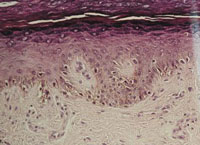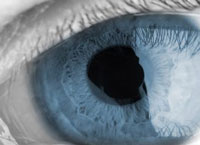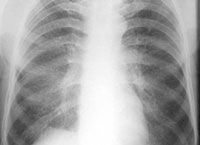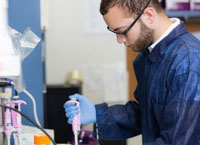Vesicants Reference Library
Literature on vesicating agents may provide important clues that will lead to the development of effective countermeasures. The Vesicants Reference Library supports searches using filters, and citations can be downloaded directly into EndNote and other popular literature citation formats.
Our Center
The National Institutes of Health (NIH) has awarded a grant to Rutgers University to support a Center of Excellence focused on the development of new and improved medical countermeasures against high priority chemical threats. This Center is focused on developing drugs to treat vesicant poisoning. Although vesicants have been studied for more than 80 years, the mechanisms mediating their actions remain unknown; moreover, to date, there are no effective medical countermeasures for exposure to these chemicals.
In collaborative studies with MRIGlobal, Lehigh University, and New York Medical College, members of the Center have identified lead compounds against vesicants which are being optimized for IND-enabling studies. Studies are in progress evaluating the efficacy of these potential countermeasures in model systems. New drug formulations and methods of drug delivery are being optimized. In addition, research and development projects are underway to identify specific mechanisms of action of these compounds and potential new targets for therapeutic intervention in three major vesicant targets: the eye, the skin, and the lung. Investigators on these projects work closely with a Pharmacology and Drug Development Core and a Medicinal Chemistry and Pharmaceutics Core with considerable expertise in drug development, providing insights to facilitate the development of countermeasures.
The research laboratories of each Core group are members of the Environmental and Occupational Health Sciences Institute (EOHSI), a facility jointly sponsored by School of Pulic Health and the School of Pharmacy at Rutgers University. An active Training and Education Program directed at health care providers at the School of Public Health and Robert Wood Johnson Medical School at Rutgers University, The School of Health Sciences and Practice at New York Medical College, and the Health Sciences Program at Lehigh University, has been established.
The principal investigators include Dr. Jeffrey Laskin as the overall director of the Center; Dr. Donald Gerecke at Rutgers as co-director of the Center; Drs. Marion Gordon, Debra Laskin, and Patrick Sinko, also at Rutgers; Dr. Diane Heck at New York Medical College, Dr. Joshua Gray at the U.S. Coast Guard Academy; and Dr. Ned Heindel at Lehigh University. Most investigators at Rutgers are members of EOHSI.
Goals of the Counter Act Program
Evaluate Higher Priority Chemical Threats
- Neurotoxic agents such as organophosphorus nerve “gases”
- Vesicating agents such as sulfur mustard
- Pulmonary agents such as chlorine gas
- Metabolic/cellular poisons such as cyanide
Scope of Research
- Mechanistic research to identify targets for therapeutic/diagnostic development
- Development of invitro and animal models for efficacy screening of therapeutics and diagnostic tools
- Efficacy screening of therapeutics/diagnostics using new and validated in vitro and animal models that are appropriate
- Advanced efficacy studies with appropriate animal models including non-human primates using Good Laboratory Practices (cGLP)
- Clinical studies, including trials, when appropriate







